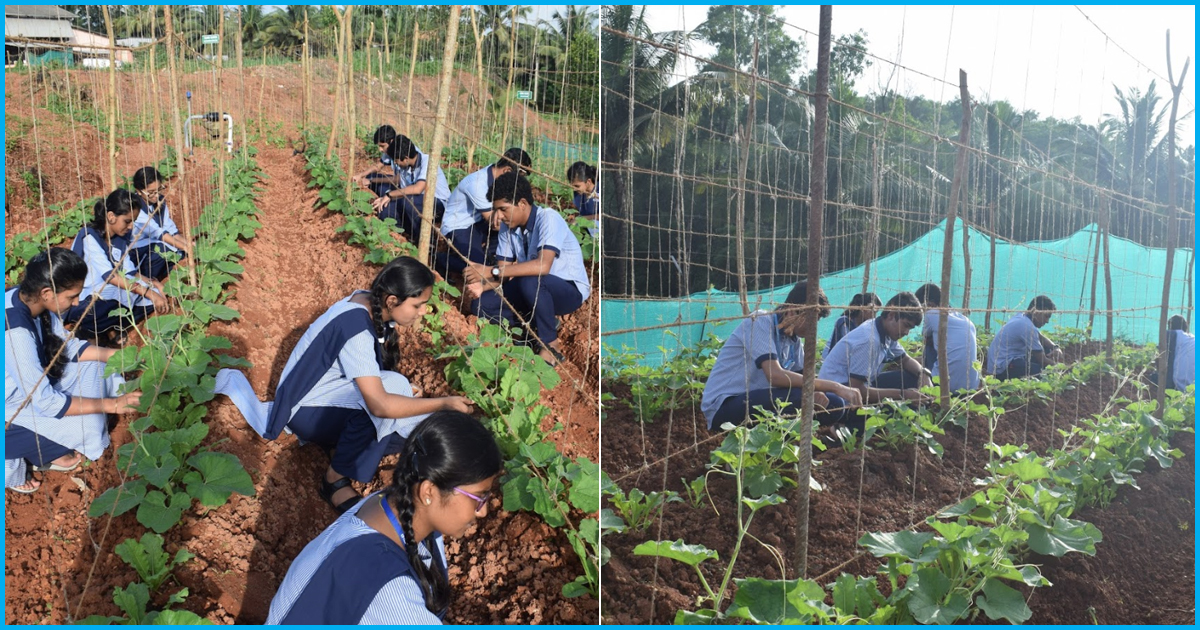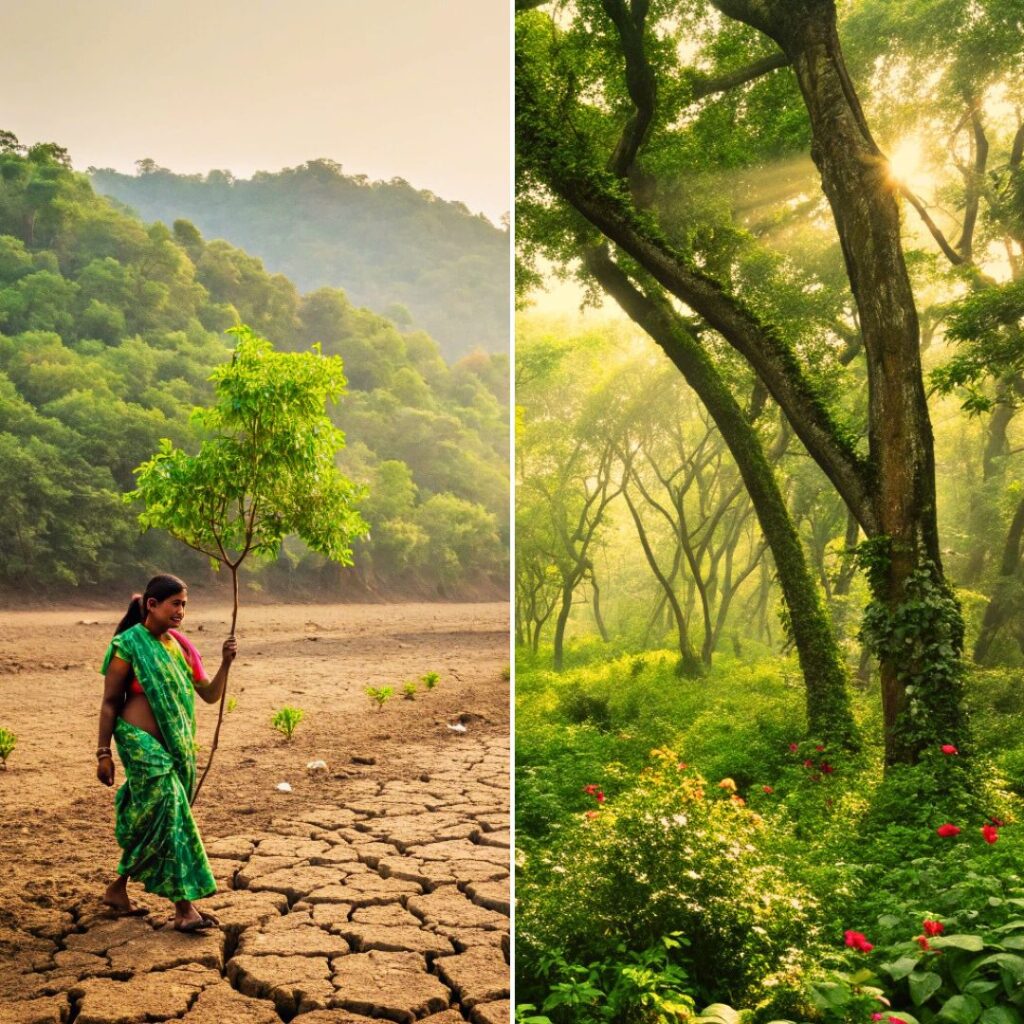At a time when we are concerned about organic farming, and we feel the need to know how our vegetables are grown, the best way would be to grow them on our own. Something similar is being taught to the students of a Mangaluru-based school.
Sharada Vidyanikethana Public School which is situated on the outskirts of Mangaluru has introduced agriscience as a compulsory subject. Both theory and practical classes have been introduced on the periodic bases, and towards the end of the academic year, a test will assess the students on their agriscience knowledge.
CBSE affiliated, Sharada Vidyanikethana Public School has even prepared a separate syllabus for agriscience curriculum for class 5th to 10th. To know more about the newly introduced subject, The Logical Indian spoke to MB Puranik, president of the Sharada Group of Institutions, who has introduced this change in the curriculum.
Puranik, who is also an agriculturist, says that India is a nation of farmers and the coastal land is still based on a lot of farming. “Over the years, a lot of urbanisation has happened, which is not a bad thing but now there is a need to educate our children about their ancestral work as well”, he said.
“The subject has been introduced with an aim to make children aware of the farming sector so that when they grow up, they can also think of taking up of farming as a career option. It is an important subject, and very soon we will approach Central Board of Secondary Education (CBSE) to make it at least an optional subject in other schools of the country,” said Puranik.
Importance of the subject
Emphasising the need to introduce agricultural science as a compulsory subject in the school, MB Puranik said, in urban areas, children don’t know how a crop is grown. He also said the subject would give them hands-on experience. Mr Puranik, an MSc (Agri) will head the Subject department and four diploma-holders will assist him.
Narrating one of his interactions with the students, he said, “Once I asked the students that, have you seen a sweet potato? A kid said yes, in a grocery shop. When I asked him where does a sweet potato grow, the kid said, on the tree. Now you know why it is important to introduce this subject because an urban kid does not even know that sweet potato is an underground plant”.
The subject has been introduced from this academic year, and it will have two theory classes and one practical every week. The students would be evaluated on their agriscience knowledge at the end of the first and second half of the academic year.
“Theory is relevant, but the practical is must, the class will help the children to understand the subject better. The children will also learn grafting and budding techniques in their practical classes.
According to Puranik, a child must be given perspective. “We as teachers should give the children a bird’s eye view, show them the most of the world, then only they (children) will have a better and vast knowledge,” he added.
Strengthening the roots
The school has set up a committee to update the syllabus of the subject regularly. Further, the school will also hold guest lectures on the subject.
Mr Puranik told The Logical Indian that the school got soil testing done in the area. Interestingly, the school has started cultivation of various vegetable crops. As of now, students have taken up the cultivation of around 18 vegetables on an area of 3.5 acres. He also said that the school is planning to take up paddy cultivation on the unused paddy fields in the vicinity of the school campus.
Though the horticultural produce will be used on the campus, plans are afoot to market the farm produce in the locality. “A team of students will be selected from the school to market the farm produce. In this connection, an outlet near the campus will sell the produce once or twice a week,” he added.
The school campus aims to be self-sufficient in more ways than one. The campus has been using rainwater harvesting as a method to re-use water. “From last four years, the water has been collected from all the campus building roofs, including the hostel blocks, this helps to recharge four borewells in the campus,” said Puranik.
He said that adequate steps have been taken for effective water management. “A 1-MLD (one million litres a day) water treatment plant helps by recycling used water. The water thus obtained will be used on the crops through drip irrigation”, he added.
The campus is home to 2,000 students and teachers. Of them, more than 1,000 are located in residential facilities on campus.











